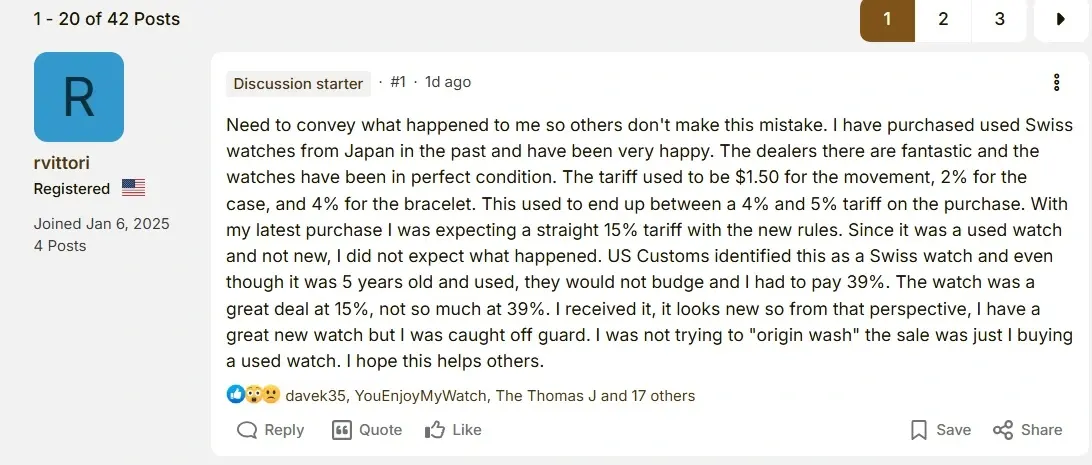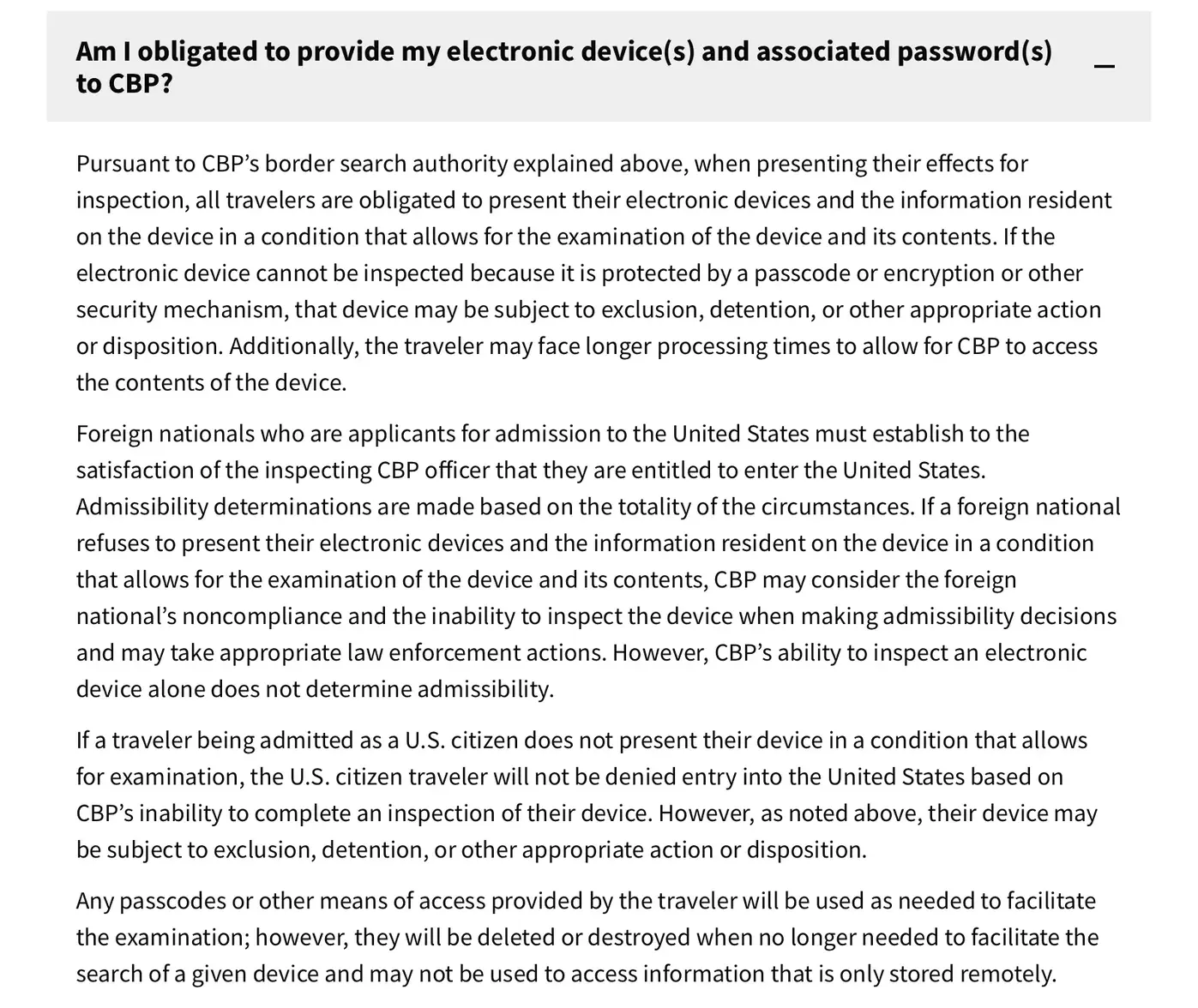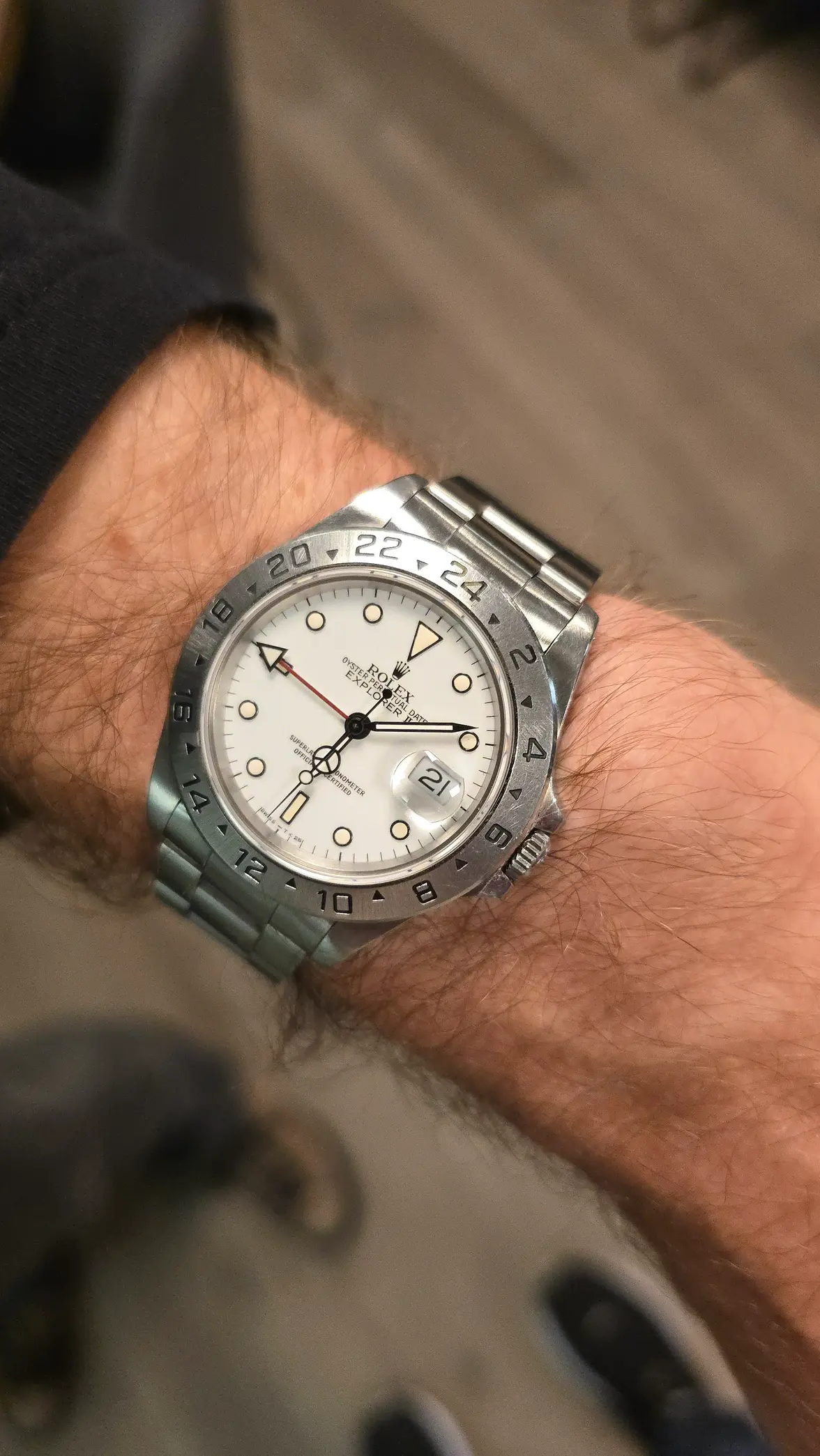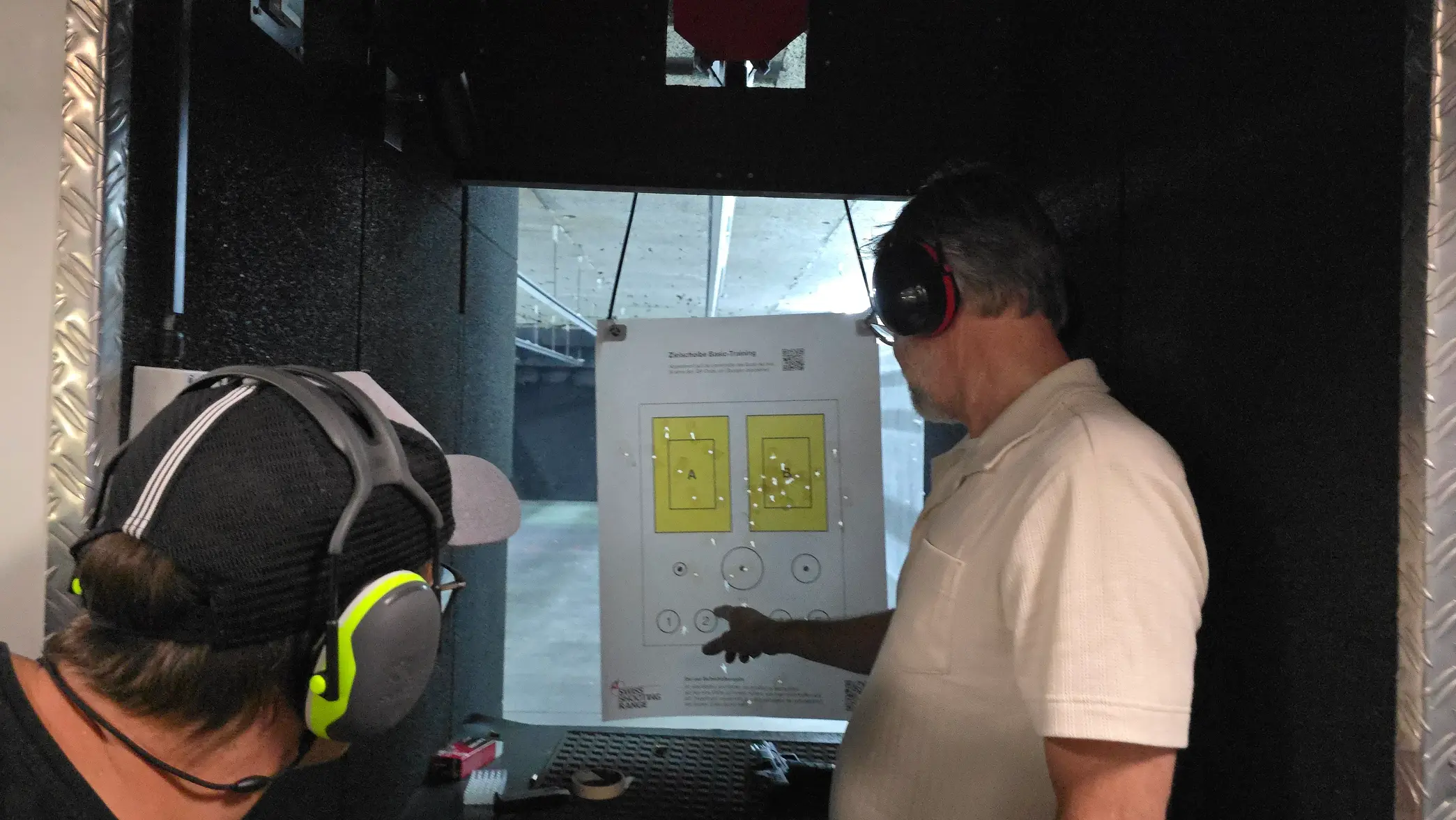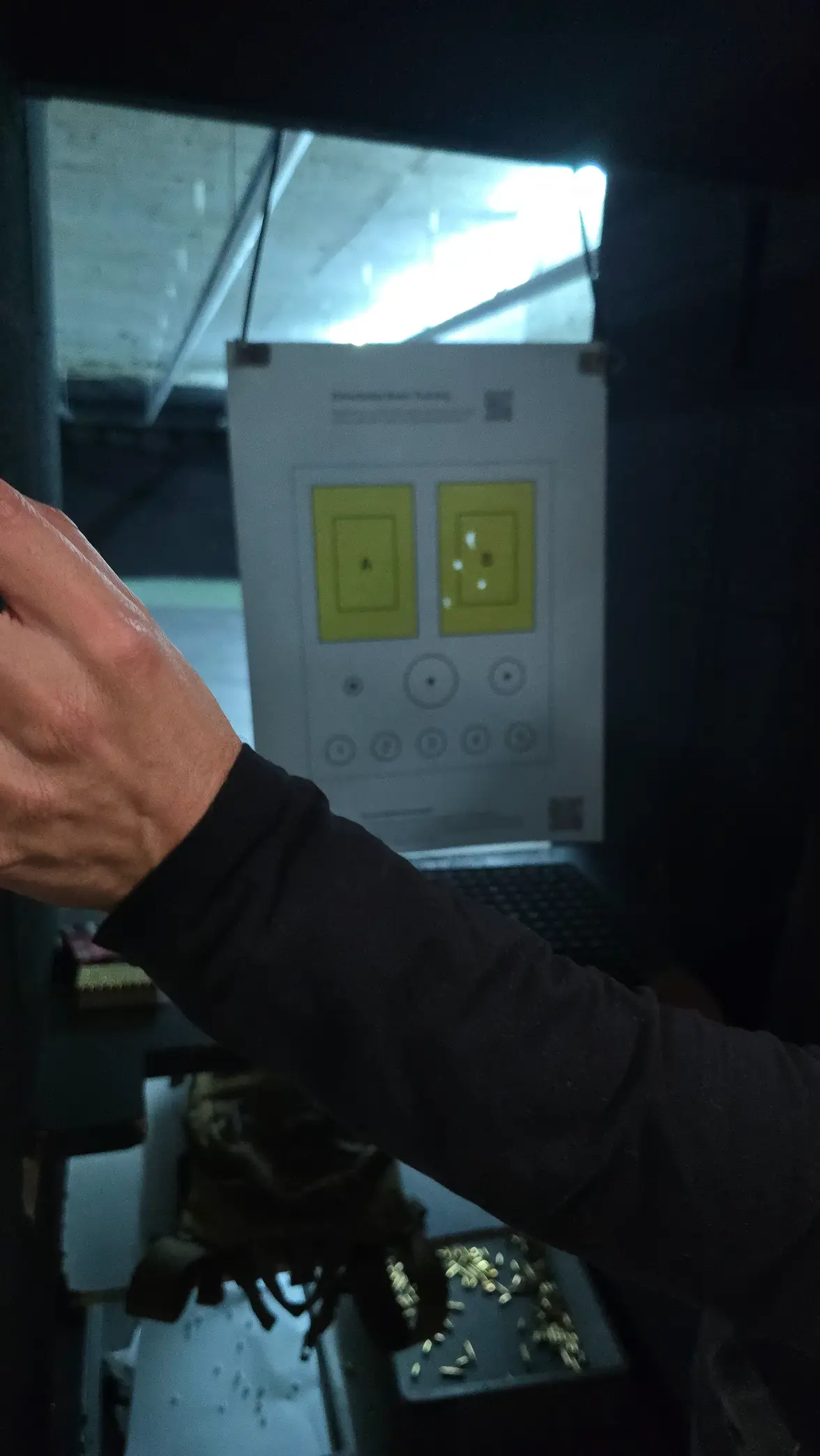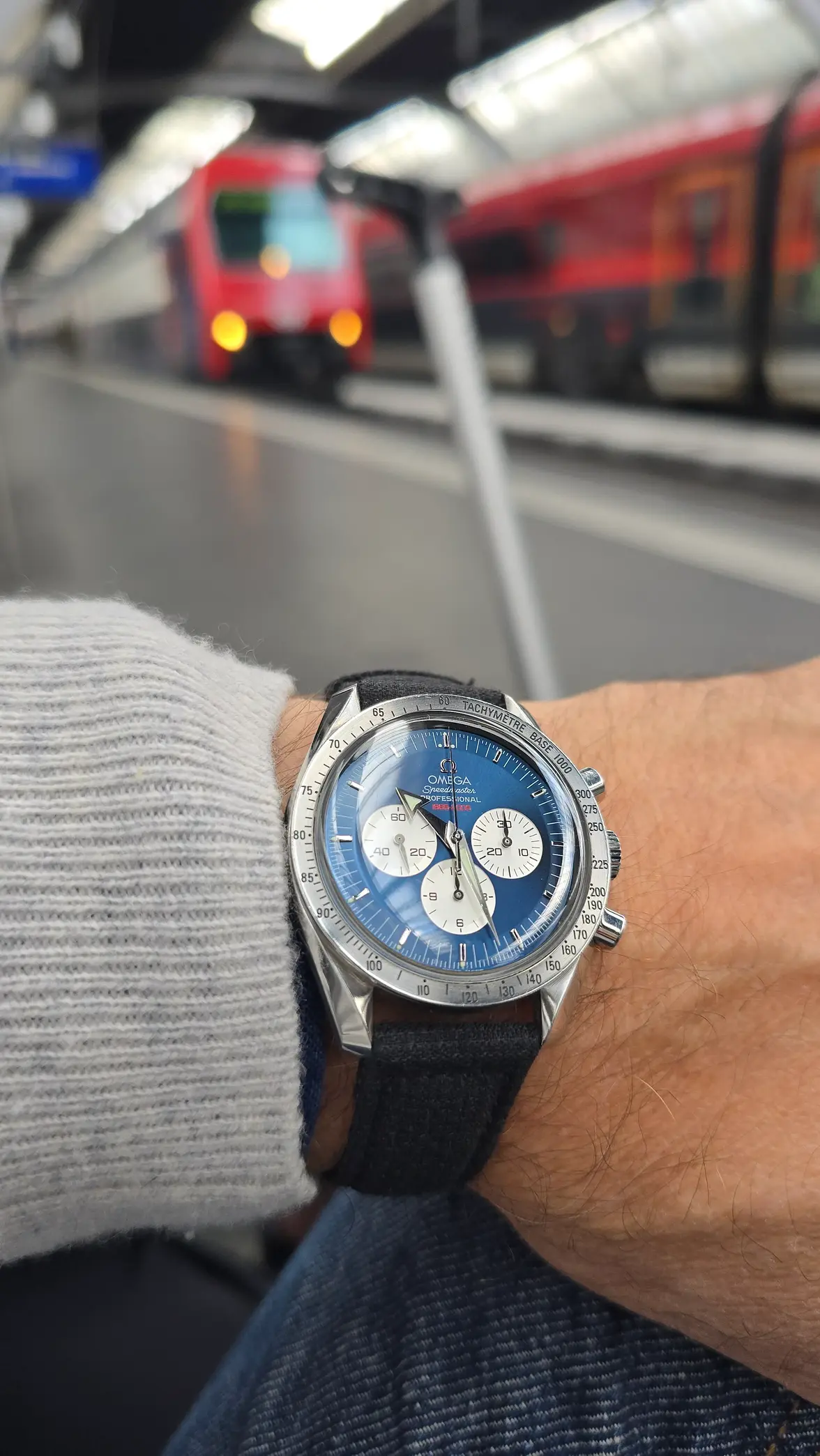Porteroso
·
They cannot deny a citizen entry, whether you hand over the password to your phone or not. It is possible that they could ask, but rare, for citizens. They asked .01% of travelers in 2024, and the majority of those were non citizens.
What we were talking about was bank transactions, and to my knowledge no citizen is asked for their bank login upon entry. The CBP has authority to search your belongings, which includes your phone, but that does not extend to your bank account.
What we were talking about was bank transactions, and to my knowledge no citizen is asked for their bank login upon entry. The CBP has authority to search your belongings, which includes your phone, but that does not extend to your bank account.
